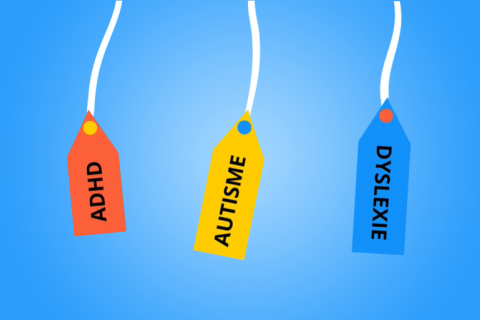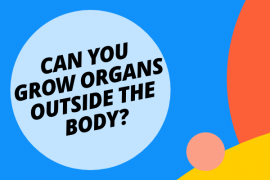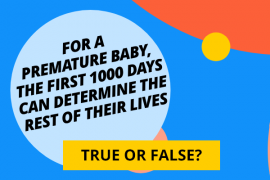How do diagnostic classifications affect children’s wellbeing?
Over the past 385 years, Utrecht University and UMC Utrecht have conducted countless studies. For example, we are currently investigating the effect of diagnostic labels on the well-being of children. The goal? To make our world of tomorrow a little better. a little better.
On average, 1 in 15 children in the Netherlands receives a label, such as ADHD, autism or dyslexia, during their childhood. Sarah Durston, professor of Brain Development Disorders at UMC Utrecht, is researching what effect such a label has on children and how they can best be helped.

Sarah Durston has been conducting research within psychiatry for more than 20 years. "People who end up in psychiatry later in life often get stuck by their own problems. It's different with children. Often the initiative to seek help lies with the parents or school. Children and parents are bothered by the behavior, but that is also related to a certain expectation pattern in society. How children with ADHD should behave, at home and at school."
"It is also often thought that you never get rid of ADHD. There are students in their early twenties who tell me they can't do something because of the ADHD diagnosis they received when they were nine. Then I think, "How do you know you can't do it? When was the last time you tried?' About a third of children grow out of it and by puberty no longer meet the criteria for the classification. By that I mean the criteria for a diagnosis as set forth in the Diagnostic and Statistical Manual of Mental Disorders."
We should give more attention to the possibilities and competences of the child, their family and the environment.
"Labels are given with the best of intentions. But in order to provide the right help to children and their families, it is imperative that we better understand what we are creating with the current system, intended and unintended."
Giving a handhold
"In society, there is a lot of focus on labels like ADHD and autism," Sarah explains further. "We have those for a reason. To get the right help, you need a diagnosis. A label can give you something to hold on to in that search. But it matters quite a bit how you look at it. Parents, schools and social workers increasingly question the effects of a label. For what happens to your self-image when you know you have ADHD, for example? Does a child feel less good than another because of such a label? You see that family and friends often treat a child differently when it becomes known that he or she has ADHD. Things that go wrong are then attributed to that, while of course something goes wrong with everyone."
If a child is not doing well, it has not only to do with him or her, but also with the personal situation.
In conversation with focus groups
Sarah continues: "We are taking a close look at current practices, including the welfare of children who are given a label." With a team of doctors and researchers from UMC Utrecht, Faculty of Social and Behavioural Sciences and the Ethics Institute of Utrecht University, Sarah is investigating the pros and cons of using labels in children. "There is a lot of expertise within Utrecht University in the field of child development and developmental disorders. We want to bring that together with this project. Every child should be able to develop properly, enjoy going to school and later work. Children with a developmental disorder need extra help and they get it, partly because we recognize with a diagnosis that they need it. But that diagnosis currently also includes a classification, or label."
The questions we ask ourselves are: What do we do with the labels we use now? What are their effects? To be able to map that, we form groups of adolescents and adults with ADHD; and parents of children with ADHD, to ask them how they experience it. What does it mean to them to have ADHD? Does a label affect how they feel? Then we ask social workers, teachers and policy makers for their views on the current system. We want to engage in a social debate. Anyone who feels called may join us in the discussion. There are already several social parties who want to participate, such as the Brain Foundation and Youké."
Optimal development through life
With all the knowledge and all the visions that are collected within the research, Sarah hopes to map out what the advantages and disadvantages of the current practice are. She wants to stimulate the social debate about this, so that the disadvantages can be addressed: "If a child is not doing well, it has not only to do with him or her, but also with the personal situation. Is there a stable home situation? Does he or she sleep enough? Can we counsel the parents? How are things going at school? We have to look at those external factors as well. And it's also related to societal expectations, because we do think that children should stay in their seats in class, for example. It's important to be very aware of all these kinds of factors, so that we can optimize the system and give every child the chance to continue to develop optimally throughout life."




